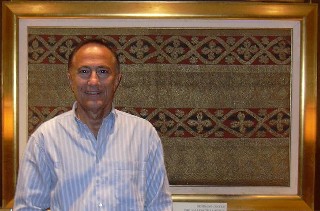The lights stay on most of the time.
Considering the general lack of infrastructure and public services in Papua New Guinea, there are impressively few power outages and the ones that happen are relatively short. Many visitors say they have traveled in countries where the electricity is far less reliable.
Ambua Lodge in the Southern Highlands has its own hydro system. It generates all the power for the lodge. Surplus power heats water which is circulated under a section of the main lodge's tile floor to help heat the dining area.
Like many hydro set-ups, audible signals are used to monitor changes in Ambua's system. Guests socializing in the dining room before dinner, may hear a bell sounding from the kitchen. No, it's not the dinner bell, dinner at Ambua is announced by a drum beat. The bell is a signal that the hydro system is properly adapting to fluctuations at this time of high demand.
Down in the the East Sepik Province, the Sepik Spirit generates its own electricity to run everything on board. That includes the greatly appreciated air-conditioning system and bar coolers.
At the Highlander Hotel in Mount Hagen and at the Airways Hotel in Port Moresby, the electricity is supplied by the municipal power grids. Both of these hotels have generators to produce their own electricity if there is a local power failure.
Of course, travelers carry their own sources of light in case of a power outage or the opportunity for a night time stroll. Many are switching from flashlights to LED headlamps. The headlamps throw a bright light, are compact and those taking one AAA battery are remarkably lightweight. While LED lamps tend not to need frequent battery changes, you should bring one or two extras. Availability in parts of PNG is limited.
One more note about these headlamps, they are the ideal compromise for reading in bed when your room mate wants the lights off.










